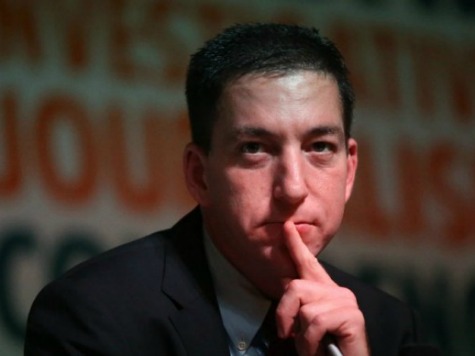The folks at Wikileaks are irate about the decision at The Intercept to redact the name of a country whose cell phone calls are being mass-monitored by the NSA, according to documents provided by Edward Snowden. That Glenn Greenwald believed there was a great chance the revelation would “lead to deaths” did not satisfy Wikileaks.
The debate began upon the publication of the latest National Security Agency news provided by Russian defector Edward Snowden, which revealed a top-secret program called MYSTIC being used to monitor several countries that the United States considers allies. MYSTIC is subdivided into smaller country-specific programs. The program in use to monitor the Bahamas is called SOMALGET.
In addition to the Bahamas, MYSTIC is allegedly being used to monitor telecommunications in Mexico, the Philippines, and Kenya. There is a fifth country in which the program is operating that Greenwald and co-authors Ryan Devereaux and Laura Poitras refused to name, given “specific, credible concerns that doing so could lead to increased violence.”
In response to the censorship of the name of the country, Wikileaks announced on its Twitter account Monday that they would reveal the name of the fifth country within 72 hours. The announcement followed a full-throated rebuke of The Intercept’s decision to withhold information: “We condemn Firstlook for following The Washington Post into censoring the mass interception of an entire nation.”
In response, Greenwald explained that the editors of Firstlook Media believed it irresponsible to reveal the name of the country. He tweeted to Wikileaks, “We were *very convinced this 1 would –> deaths,” reminding them that they, too, had redacted leaked information when lives were on the line. Wikileaks responded by alleging that “true information” had never “hurt innocents” and that Greenwald was parroting a Pentagon propaganda line.
They then accused Greenwald and The Intercept of “acting like a bunch of racists” for not publishing the information. Greenwald replied merely that the accusation was “absurd,” given that none of the countries which he had revealed to be under surveillance were majority white countries.
Greenwald has previously defended Wikileaks for not redacting information that could potentially harm innocent people, particularly after the organization released thousands of pages of documents related to the war in Afghanistan, and claimed that the Pentagon declined to help them redact the names of individuals who could be killed in response to the release of the documents.
While Greenwald admitted at the time that “more care should have been exercised before that first set of documents was released,” he did not condemn Wikileaks for releasing them, but condemned the Pentagon for not aiding Wikileaks in redacting sensitive information. “In the conflict between the U.S. Government and WikiLeaks, it is true that one of the parties seems steadfastly indifferent to the lives of Afghan civilians,” he wrote.
It is not believed that Wikileaks has full access to the Snowden documents, so whether they have the information they are vowing to reveal will remain a mystery until they do reveal it. The documents are believed to be in the hands of Greenwald and his team.

COMMENTS
Please let us know if you're having issues with commenting.